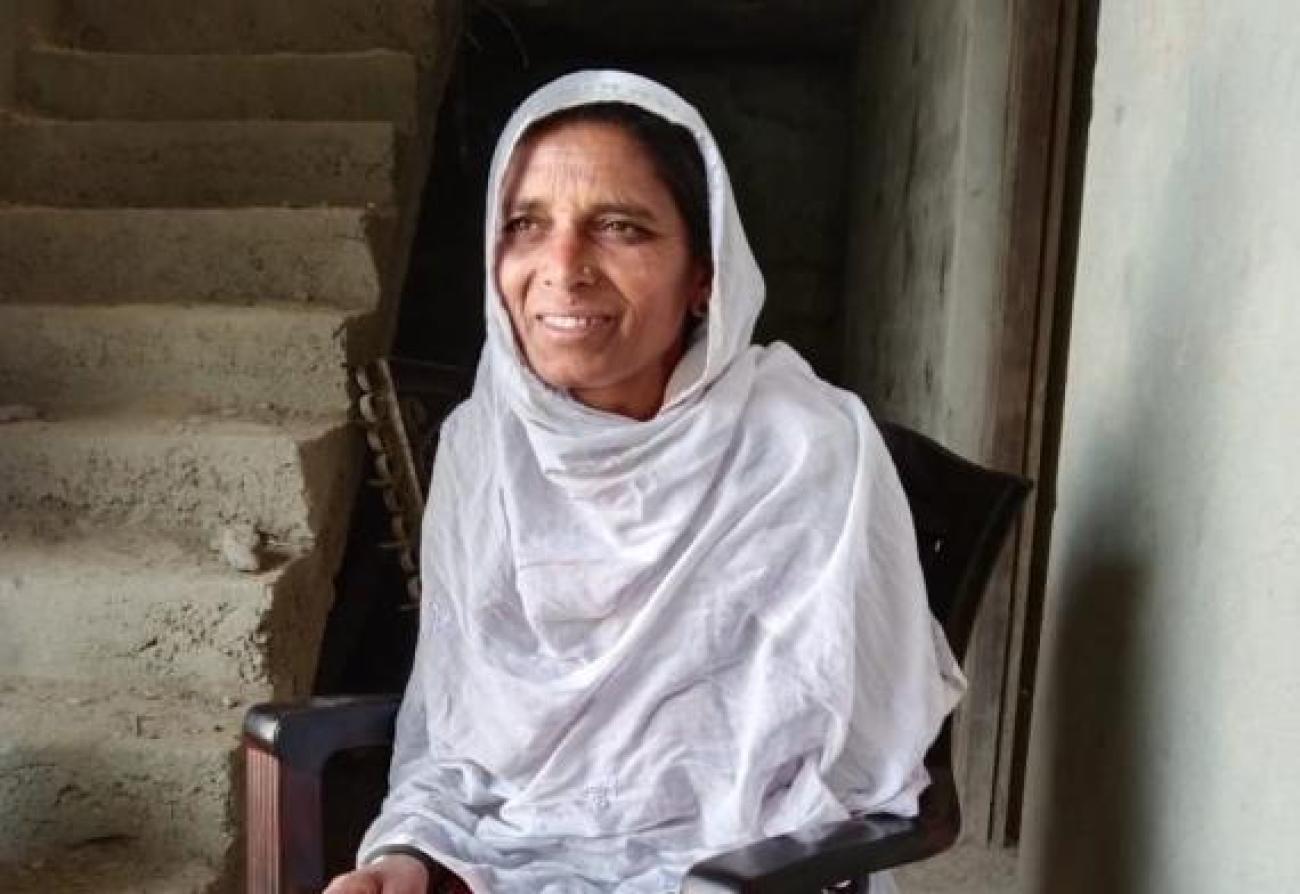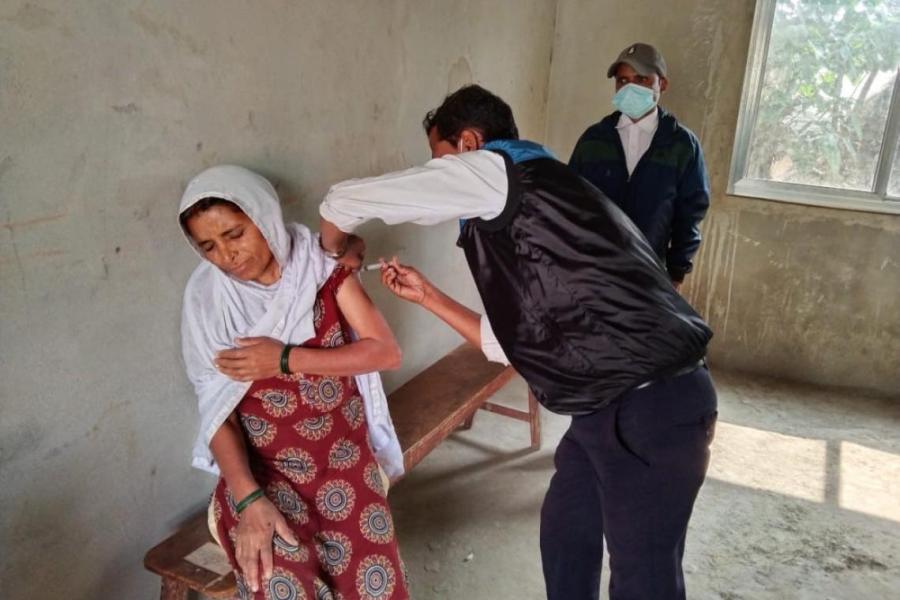Right information, right decisions

In a Muslim community in Rupandehi District in western Nepal, religious leaders are helping health officials to counter COVID-19 vaccine misinformation
Rupandehi, Nepal: When 69-year-old Tarawani Dhobi learned that the Government of Nepal had launched the COVID-19 vaccine drive in late January 2021, she had mixed feelings. While on one hand, she was exhausted from living in fear and anxiety because of the coronavirus, on the other, some of the things she had heard about the vaccine had made her skeptical.
“There were all kinds of rumours going around at the time about what the vaccine was made of,” she says. “Among other things, people were saying that it consisted of lard and alcohol.”
For the Muslim-majority community which Tarawani hails from, in Jagannath in Rupandehi District in western Nepal, along the border with India, such rumours were a major reason for people’s initial reluctance to get vaccinated.
“Even though we wanted to be free of the threat of the coronavirus, we felt the vaccine was against our religion, and that we should not take it.”
Indeed, as has been the case throughout the pandemic, misinformation has also been rife surrounding the COVID-19 vaccine, creating confusion and misunderstanding in people. And with real-world consequences, too: for instance, on the first day of the second phase of the COVID-19 vaccine drive in March – aimed at elderly people like Tarawani – only 28 out of the targeted 432 people in the village turned up at the vaccination center.
Concerned about the low turnout, local health officials, in coordination with the local government and UNICEF, visited the area. Upon talking to people, it became clear to the team that misinformation about the vaccine – particularly as it relates to religion – was at the heart of the issue.
“Since the rumours were linked to people’s religious beliefs, we decided that it was through religion itself that they needed to be refuted,” says health official Prabhendra Shah. The team immediately sought the support of maulanas or Islamic leaders to help reassure and convince community members.
“We wanted the correct information to come from them, because people trusted their voice and opinions.”
And so, the maulanas – accompanied by health officials, elected ward representatives, social mobilizers and UNICEF staff – started the rounds of households in the community, including that of Tarawani. “They came to our door and told us that what we had been hearing about the vaccine were untrue, and that we needed to take it if we wanted to be safe from COVID-19,” Tarawani says. “It was a relief.”

The next day, Tarawani was among the 400 people who had arrived at the vaccination center to get the shot. She says that she wouldn’t have done it if not for the home visit from the maulana.
And how is she feeling now that she has gotten the vaccine?
“More confident, and safe,” she says.
UNICEF has been working with the government to spread awareness about vaccination and counter hesitancy amidst the Nepali public – through placement of messages on radio and TV programmes, distribution of information, education and communication materials, SMS messages, outbound dialing, miking, mobilization of young volunteers and scouts to promote preventive behaviours, as well as interpersonal communication, such as through door to door visits in targeted communities, among other activities.


